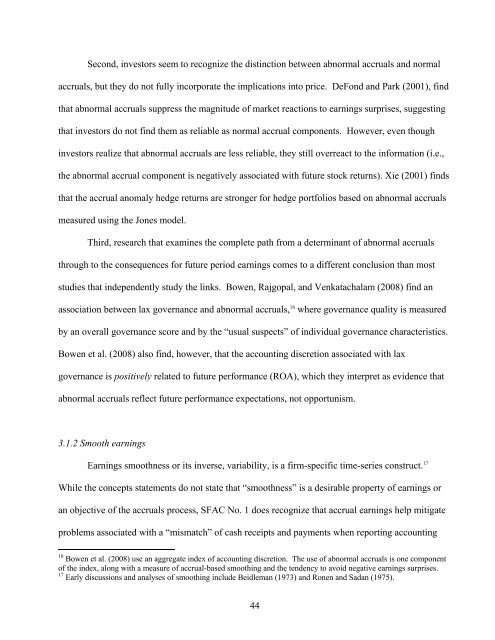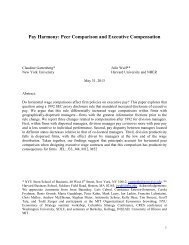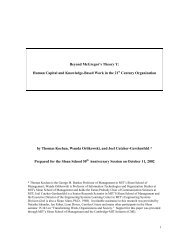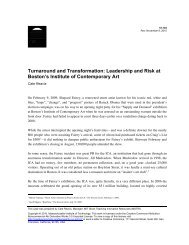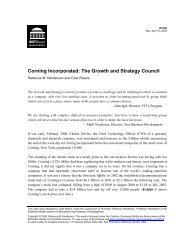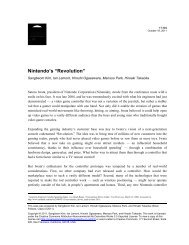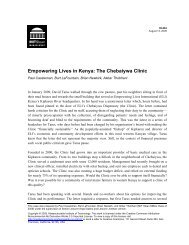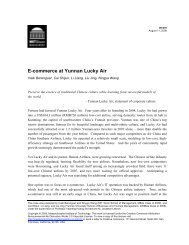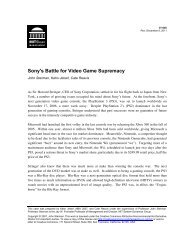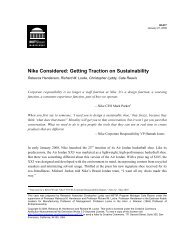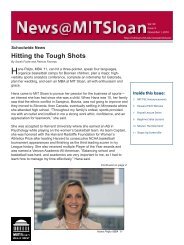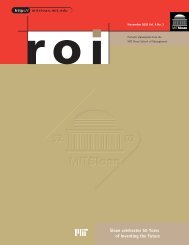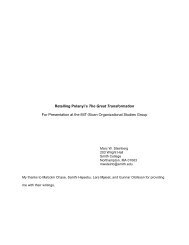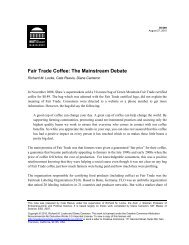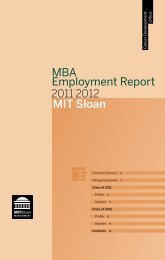Understanding earnings quality - MIT Sloan School of Management
Understanding earnings quality - MIT Sloan School of Management
Understanding earnings quality - MIT Sloan School of Management
You also want an ePaper? Increase the reach of your titles
YUMPU automatically turns print PDFs into web optimized ePapers that Google loves.
Second, investors seem to recognize the distinction between abnormal accruals and normal<br />
accruals, but they do not fully incorporate the implications into price. DeFond and Park (2001), find<br />
that abnormal accruals suppress the magnitude <strong>of</strong> market reactions to <strong>earnings</strong> surprises, suggesting<br />
that investors do not find them as reliable as normal accrual components. However, even though<br />
investors realize that abnormal accruals are less reliable, they still overreact to the information (i.e.,<br />
the abnormal accrual component is negatively associated with future stock returns). Xie (2001) finds<br />
that the accrual anomaly hedge returns are stronger for hedge portfolios based on abnormal accruals<br />
measured using the Jones model.<br />
Third, research that examines the complete path from a determinant <strong>of</strong> abnormal accruals<br />
through to the consequences for future period <strong>earnings</strong> comes to a different conclusion than most<br />
studies that independently study the links. Bowen, Rajgopal, and Venkatachalam (2008) find an<br />
association between lax governance and abnormal accruals, 16 where governance <strong>quality</strong> is measured<br />
by an overall governance score and by the “usual suspects” <strong>of</strong> individual governance characteristics.<br />
Bowen et al. (2008) also find, however, that the accounting discretion associated with lax<br />
governance is positively related to future performance (ROA), which they interpret as evidence that<br />
abnormal accruals reflect future performance expectations, not opportunism.<br />
3.1.2 Smooth <strong>earnings</strong><br />
Earnings smoothness or its inverse, variability, is a firm-specific time-series construct. 17<br />
While the concepts statements do not state that “smoothness” is a desirable property <strong>of</strong> <strong>earnings</strong> or<br />
an objective <strong>of</strong> the accruals process, SFAC No. 1 does recognize that accrual <strong>earnings</strong> help mitigate<br />
problems associated with a “mismatch” <strong>of</strong> cash receipts and payments when reporting accounting<br />
16 Bowen et al. (2008) use an aggregate index <strong>of</strong> accounting discretion. The use <strong>of</strong> abnormal accruals is one component<br />
<strong>of</strong> the index, along with a measure <strong>of</strong> accrual-based smoothing and the tendency to avoid negative <strong>earnings</strong> surprises.<br />
17 Early discussions and analyses <strong>of</strong> smoothing include Beidleman (1973) and Ronen and Sadan (1975).<br />
44


